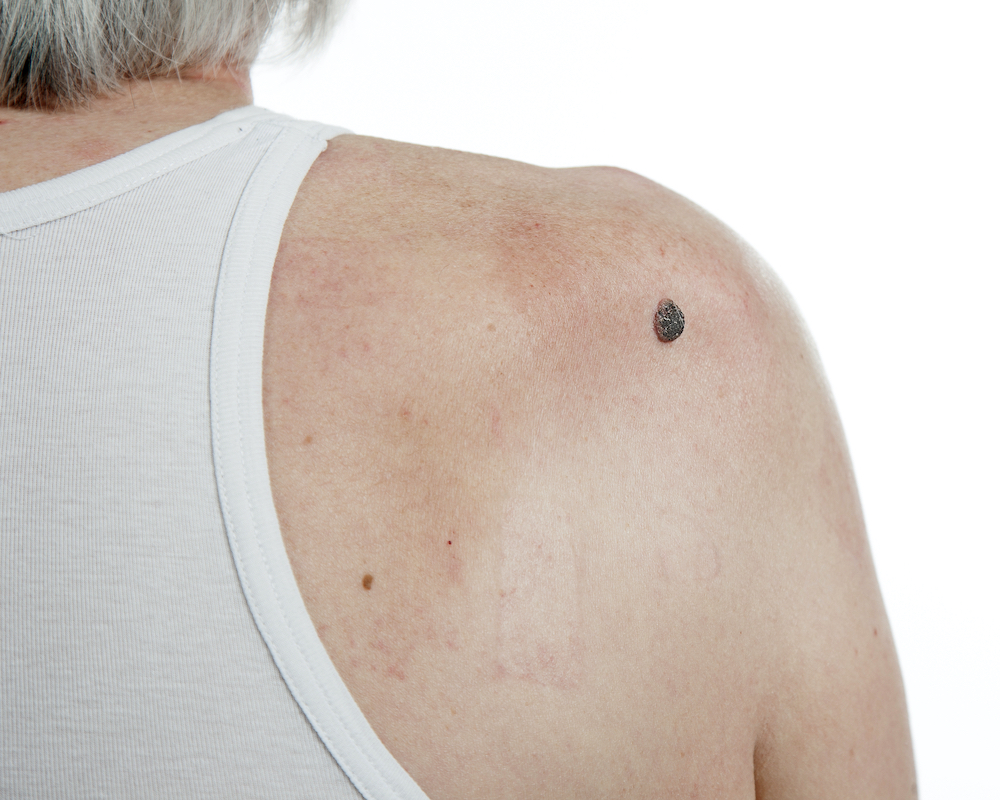4 Types of Skin Cancer To Know About

Skin cancer is the most common type of cancer in the United States. With early detection and proper treatment by a dermatologist, you can reduce your risk of serious complications. In order to stay on top of potentially cancerous moles and changes in the skin, it is important that you know what to look for.
Read on to learn about key skin cancer statistics, the 4 most common types of skin cancer and how to practice early detection.
Key Skin Cancer Statistics
The skin is the largest organ in the human body. It is made up of three layers including the epidermis, the dermis and the hypodermis. When any of the cells that make up these layers begins to change or grow rapidly, it forms a tumor that may be cancerous. Cancerous tumors can grow and spread rapidly throughout the body, and therefore must be addressed quickly to prevent further damage.
The Skin Cancer Foundation has provided some vital statistics about skin cancer and its prevalence in the United States:
- 1 in 5 Americans will develop skin cancer by the age of 70
- More than 2 people die of skin cancer in the United States every hour
- Having 5 or more sunburns doubles your risk for melanoma
- When detected early, the 5-year survival rate for melanoma is 99 percent
4 Most Common Types of Skin Cancer
There are 4 main types of skin cancer. Knowing a little about each can help you identify suspicious moles or changes in your skin, and help you ask better questions of your dermatologist during your annual skin cancer screening.
Basal cell carcinoma
Basal cell carcinoma is the most common form of skin cancer, accounting for about 80% of skin cancer diagnoses. Basal cells are located in the epidermis, and cancers of this type generally appear on the head and neck due to their propensity toward sun exposure. Basal cell carcinoma is generally slow growing and does not spread throughout the body.
Squamous cell carcinoma
Squamous cell carcinoma also develops in the epidermis and accounts for approximately 20% of skin cancer cases. In most cases, people develop this type of skin cancer through extensive sun exposure, after chemical burns or exposure to x-rays. It often appears near the mouth or on the lips. Squamous cell carcinoma can spread to other parts of the body. This type of cancer can appear as scaly skin patches or look like warts.
Merkel cell carcinoma
Merkel cell carcinoma initiates in the hair follicles of the head and neck. It is associated with hormone producing cells and is also known as neuroendocrine carcinoma. This type of skin cancer is aggressive and can grow quickly. However, it is rare. In general, older people tend to develop this type of cancer. It appears as a painless bump.
Melanoma
Melanoma is the most serious type of skin cancer. While it only accounts for about 1% of the skin cancer cases, it is responsible for the most deaths. According to the American Cancer Society, approximately 106,000 new cases of melanoma will be diagnosed this year, with about 7,000 deaths attributed to the cancer. This type of cancer affects the pigment producing melanocytes that can be found where the epidermis (the outermost layer) and the dermis (the inner layer) meet.
Early Detection is Best Practice
When detected early, many skin cancers can be effectively treated under the care of your dermatologist. It is key that you schedule an annual skin cancer screening with your doctor. During your screening, your dermatologist will discuss potential risk factors and perform a visual scan of your skin to note all moles. This process makes it easier to detect changes or the appearance of abnormal growths that must be addressed.
Buckhead Dermatology Atlanta and College Park
If you have noticed changes in the appearance of your moles or new ones developing quickly, you should consult with a board-certified dermatologist right away. Dr. Straughn of Buckhead Dermatology can evaluate your areas of concern, provide you with a diagnosis and develop an effective treatment plan. With two offices located conveniently in Atlanta and College Park, Dr. Straughn has been proudly serving Atlanta-area patients for more than 25 years.
Call the office today at 404-816-4000 to schedule your appointment or to learn more about our leading dermatology practice.
